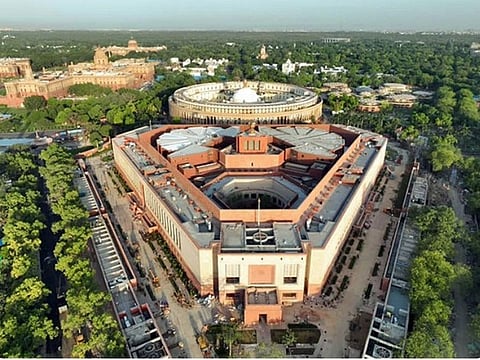

NEW DELHI: The Joint Parliamentary Committee on the Waqf (Amendment) Bill is scheduled to meet on September 18, 19 and 20 at the Parliament House Annexe, official sources said.
On September 18, officials from the Ministry of Minority Affairs will present their oral evidence before the committee. The next day, the JPC will hear opinions or recommendations of some experts and stakeholders, including Prof Faizan Mustafa, Vice Chancellor of Chanakya National Law University, Patna; Pasamanda Muslim Mahaaz; and the All India Muslim Personal Law Board. On September 20, inputs will be sought from the All India Sajjadanashin Council, Ajmer; Muslim Rashtriya Manch, Delhi; and Bharat First, Delhi on the Bill, the sources said.
On August 8, the two bills — Waqf (Amendment) Bill, 2024 and Mussalman Wakf (Repeal) Bill, 2024 — were introduced by the government in the Lok Sabha with an objective to streamline the Waqf Board’s works and ensure an efficient management of waqf properties. Since the constitution of the JPC, the fourth meeting was held on September 6 to examine the Bill.
At the fourth meeting, senior officials of the Archaeological Survey of India (ASI) made a presentation before the JPC. Also other stakeholders, including the Zakat Foundation of India and the Telangana Waqf Board, shared their views, suggestions, and oral evidence.
The Congress-led Opposition is firm on their protest against the Bill and have decided not to support it during upcoming Parliament session. The Bill was referred to JPC following the Opposition demand and the panel is expected to submit its report to the Lok Sabha Speaker ahead of the next session.
According to a statement issued on Friday by the Ministry of Minority Affairs, the objective of the Bill is to amend the Waqf Act, 1995 to redress the issues and challenges in regulating and managing Waqf properties.
“It (the Bill) aims to overcome the shortcomings o the previous act and enhance the efficiency of Waqf boards by introducing changes such as renaming the Act, updating the definitions of Waqf, improving the registration process , and increasing the role of technology in managing Waqf records,” the ministry said.
The government said that primary objective of the Mussalman Waqf (Repeal) Act, 2024 is to repeal the Mussalman Waqf Act, 1923, a colonial-era legislation that has become outdated and inadequate for managing Waqf properties in modern India.